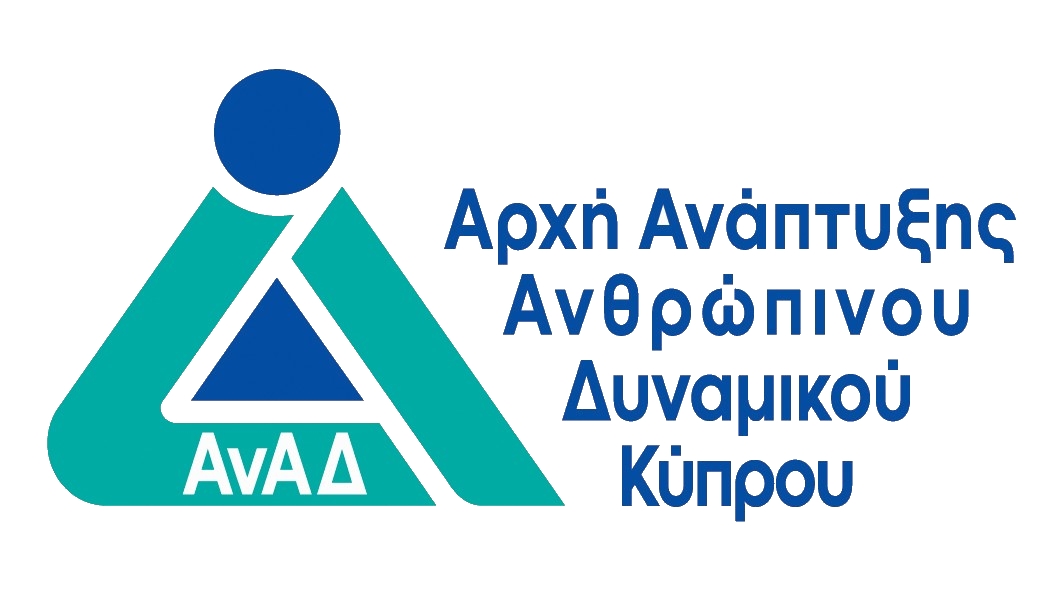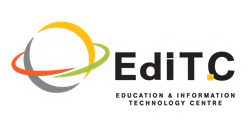
Microsoft Power Automate for End Users and Microsoft PowerApps(Course 55265-A & Course 55268-A)
- Οργάνωση/ Διοίκηση/ Ηγεσία - Πληροφορική - Επαγγελματίες IT

ΠΕΡΙΓΡΑΦΗ
Microsoft Power Automate for End Users delivers an instructor-led product showcase for Microsoft Flow from start to finish in an engaging and practical way. Flow is a diverse product, turning business processes into automated, consistent and visual workflows. Flow is designed to interweave the various products in Office 365 as well as connect to other on-premises and web-based solutions.
Microsoft PowerApps will give you the confidence to select the right actions and workflow logic for your business workflows. This course delivers an instructor-led breakdown of Microsoft PowerApps. Students will be taught how to design, test and publish new apps that work with a variety of data sources. We will take users through a selection of well-crafted lessons to help them build new applications for their business.
ΣΚΟΠΟΣ ΣΕΜΙΝΑΡΙΟΥ
Upon completion of this course the participants will :
For MS Power Automate for End Users
- Understand when to use Flow
- Describe the components of Flow and their correct use
- How to create and edit Flows
- Benefits of Flow
- Integration with Flow
For PowerrApps
- Understand when to use PowerApps
- Describe the components of PowerApps and their correct use
- Create PowerApps from exsiting data sources
- Brand PowerApps
- Customise PowerApps beyond just using the automated wizards
- Connect to a range of data sources from Excel to Azure SQL
- Understand the difference between canvas apps and model-driven apps
- Integrate PowerApps with other Office 365 systems - including Teams and SharePoint Online
- Administer and Maintain PowerApps
ΣΕ ΠΟΙΟΥΣ ΑΠΕΥΘΥΝΕΤΑΙ
The intended audience for Microsoft Power Automate for End Users would be those who have been using Office 365 for some time and are now looking at optimizing their existing business processes and designing new ones.
The Microsoft PowerApps class has something for everything, from beginners who wish to customize their data entry forms in SharePoint right up to advanced users who need to use advanced formulas to deliver more bespoke actions to their apps.
ΠΕΡΙΣΣΟΤΕΡΕΣ ΠΛΗΡΟΦΟΡΙΕΣ
Topics
COURSE TOPICS (Microsoft Power Automate for End Users)
Module 1: An Introduction to PowerApps
Let’s get started with an introduction to Microsoft Flow. Historically, automating business processes typically landed in the lap of a developer in the business, who has a good understanding of coding and the systems that they were connecting. However, more and more systems deployed to businesses are encouraging a bigger focus on end user design and management. With this culture change, end users are looking to further improve their business solutions. Flow brings workflow design to all audiences. It offers the building blocks for lightweight or business-critical processes. In this module, we cover an overview of the product and its application to Office 365 and third-party services.
Lessons
What is Microsoft Flow?
The benefits of automation
How to get to Flow
Lab : Setup your tenant
Setup Office 365
Download Course Files
Customise your App Launcher
Create accounts for colleagues
After completing this module, students will be able to:
Know what Microsoft Flow is
The Benefits of using Flow to automate processes
How to access a flow
Module 2: Getting Started with Flow
We begin our discovery of Microsoft Flow by building our first business process. We will discuss how to use templates to get started with Flow or how to use a blank template to start with no defined actions. Once in the product, we will give you a tour of the editor, workflow management page and the home screen to help you navigate around the product. Next, we will start to add, edit and remove actions from our workflow template in order to customise the Flow for a specific business need. Once ready we will publish and trigger the workflow to test that it works as expected. We will finish this module by discussing how to turn a Flow on or off as well as deleting a Flow.
Lessons
Using Flow templates
Navigating in Flow
Editing a Flow
Publish and trigger a Flow
Turn off or delete a Flow
Lab : Building processes in Office 365
Create a Team with a channel
Build an absence business process
Testing the absence process
Optional: Create Feedback Form
Optional: Flow to Notify of Bad Ratings
Optional: Test your Form and Flow
After completing this module, students will be able to:
How to use Flow templates
How to navigate around Flow
How to edit Flows
How to publish and trigger Flows
How to turn off or delete Flows
Module 3: Flow logic
Decision making during a business process is often a bottleneck. Waiting for decisions or information to steer the workflow towards its goal is dependent on how long the involved party spends on the task. This could be mitigated if the desired information is found declared elsewhere for example, as a document property or a form entry to name a few examples. Logic in a workflow allows existing information to push the workflow down multiple paths. This often speeds up workflow duration and minimizes human input. In this module, we will look at the core logic found in Flow and a practical application of each option.
Lessons
Adding conditions
Designing switches
Using apply to each
Configuring do until logic
Adding a scope
Lab : Scheduling documentation reviews
Setup a policy library in SharePoint
Design a policy review schedule
Testing the policy review process
Optional: Notify if a file nears review
After completing this module, students will be able to:
How to add condtions in a flow
How to design switches for a flow
How to use apply to each
How to configure do until logic
How to add a scope
Module 4: Integration
Businesses will often user a selection of productivity tools and services beyond Office 365. Marketing teams may use Facebook and Twitter whereas a sales team may use Salesforce to manage their customers. Flow provides connectors for popular services allowing your processes to extend beyond Office 365 to other web services. Connections can even be made to on-premises servers, allowing your business systems house at the office to take part in your processes.
Lessons
Standard and premium connectors
Connecting to web services
Using Flow with on-premises data
Lab : Using Flow and SQL to Review Sales
Create a new orders list
Designing the price check process
Testing the price check process
Optional: Update with managers
After completing this module, students will be able to:
How to use Standard and Premium connectors
How to connect to web services
How to using Flow with on-premises data
Module 5: The mobile app
Flow has a corresponding mobile app that can be used to leverage many features of Flow. Firstly, it offers users the capability to build new Flows, directly from their phone or tablet. Secondly, it can be used to manage existing flows including editing, viewing history, saving a copy, disabling and deleting Flows. You can access any approvals that have been sent to you by Flow and approve or reject decisions. The app also supports the push notifications that can be sent to your phone or tablet from a Flow. Additionally, you can even create buttons that appear in the app which allow you to trigger Flows. This valuable app will be detailed in this module.
Lessons
Downloading the mobile app
Signing in and account management
Building and managing Flows
Creating buttons
Feeds and approvals
Lab : Optional: Using the flow mobile app
Setting up the Flow mobile app
Create a new flow in the mobile app
Using flow buttons in the app
Uninstall the flow mobile app
After completing this module, students will be able to:
How to download the mobile app
How to sign into the mobile app
How to build and manage flows in the mobile app
How to create buttons in the mobile app
How to feed and use approvals in the mobile app
Module 6: Administration and maintenance
In our last module for Microsoft Flow, we will be taking a look at how a business can manage their Flows once they have a good uptake of the product. We will begin by discussing managing individual Flows. This could be using history to discover the source of any issues and implement error handling as well as using the analytics to discover usage trends. We will discover how to share a Flow which is ideal for sharing the maintenance of a Flow with another colleague and how to import and export Flows. Finally, we will discuss how Office 365 administrators can shape the Flow experience with high-level settings that help ensure data segregation and security.
Lessons
Maintaining a Flow
View history and analytics
Sharing a Flow
Export and import Flows
Office 365 administration for Flow
Environments
Data policies
Data integration
Lab : Maintaining your flows
Share a flow with a colleague
Disabling an active flow
Deleting a flow
After completing this module, students will be able to:
How to matain a flow
How to view history and analytics for a flow
How to share a flow
How to export and import flows
How to administrate a flow in Office 365
How to use data policies in a flow
How to use data integration in a flow
COURSE TOPICS (Microsoft PowerApps)
Module 1: An Introduction to PowerApps
Let's get started with an introduction to Microsoft PowerApps. Traditionally building customised solutions for a business involved using a coding language to build an application from scratch. Typically, these solutions could often only be used within the business, making external use of the application a large hurdle to overcome. With PowerApps we can now not only easily build solutions, but we can also share them with users in our business. Deployment takes seconds and you could by testing your own app on your phone in no time. This module will overview the features of PowerApps, its benefits to a business and the variety of ways you can build and access your apps on different devices.
Lessons
What is PowerApps?
The benefits of apps
How to get PowerApps
Canvas Apps and Model-Driven Apps
License Options and Costs
Discover PowerApps with Templates
Lab : Introduction to PowerApps
Try the Cost Estimator App
Download and Review App Design
Sample App of your choice
After completing this module, students will be able to:
Describe when PowerApps should be used
Know how to access PowerApps
Make design decisions based on PowerApps licenses
Understand that there are two type of app
Be able to use sample apps
Module 2: Getting Started with PowerApps
To begin our journey through the PowerApps product, we will begin by looking at some of the templates that are available to view and edit. Microsoft's templates are a good starting point to discover what the product is capable off and how it can be achieved. We will also take the chance to have a tour of the editor so that students are familiar with the interface that they will be using over the two-day course. We will then build our first app from a static data source, showing students how to test their changes in the app instantly without the need to publish. We will also discuss how to configure your apps settings and how to access the app once it has been saved and shared.
Lessons
Building a new app from a data source
Add, edit and remove controls
Intro to Formulas
Testing an app
App Settings
Publish and Share Apps
Version History and Restore
PowerApps Mobile App
Lab : Getting Started
Create App from an existing Data Source
Publish and Share
View an app on your mobile device
After completing this module, students will be able to:
Build a useful app using wizards in minutes
Make simple changes to existing apps
Know how formulas are used in PowerApps
Be able to test an app before it is shared
Restore a previous version of an app in the event of a problem
Use the mobile app to cosume an app
Module 3: Branding and Media
In our next module, we will look at the options available to designers that allow them to implement their business branding. Not only will this deal with the aesthetics of your app, it will also introduce time-saving tips to help keep your branding consistent. We will also be discussing how to embed media into your app which can be useful if you are planning on an app that might promote video content.
Lessons
Less is more
Duplicate Screens
Fonts
Screen Colours and Matching Colours
Screen Backgrounds
Buttons and Icons
Hide on Timer
Size and Alignment by reference
Show and Hide on Timer
Lab : Branding and Media
Backgrounds and icons
Import Class Data from Excel
Duplicate Screen
After completing this module, students will be able to:
Customise apps backgrounds with images and colour
Add images and logos to an app
Use times to show and hide controls
Align and size controls
Module 4: PowerApps Controls
So far in the course, we would have covered the basics of adding, editing and removing controls from our applications. The drive behind this module is to provide more depth on the categories of controls which can be used on a form. Your instructor will take you through each control and discuss its purpose and configuration. Tackling the wide selection of controls will help students recognise when to use the right control.
Lessons
Text Controls for Data Entry and Display
Controls - Drop downs, combo box, date picker, radio button and more
Forms - Add and edit data in underlying data sources quickly
Charts - present information in pie, line and bar charts
Lab : Build Apps from Blank
Create an App from the blank template
Add Controls to collect and display data
Add Formulas to allow the controls to interact
After completing this module, students will be able to:
Use a wide range of controls to give users the best data entry experience
Edit control properties
Use formulas to all multiple controls to interact with each other Present information using charts
Module 5: Data Sources and Logic
To help maintain and view essential business information, organisations often have a diverse selection of locations to keep different types of data. This could range from databases to file storage locations. PowerApps offers connections to a wide selection of data sources. We will show students to build their PowerApps to bring in data from a variety of sources as well as how they can utilise the common data source, a storage location unique to PowerApps.
Lessons
Data Storage and Services
How do I decide which database to use?
Connect to on-premises data - Gateway
What is Delegation?
Specific Data Examples
Displaying Data
Lab : Data Source and Logic
SharePoint List connect to App
Flow to collect tweets to SharePoint
Display Tweets in PowerApps using the Twitter service
Create a reply screen in PowerApps
After completing this module, students will be able to:
Connect to many data source including cloud and on premises
Understand the financial costs of working with different datasources
Understand which data sources can work with large amount of data
Display data using controls
Module 6: Model-Driven Apps
Module one to five discussed how to work with the original type of PowerApp known as a Canvas App, Microsoft have now introduced a second type of app known as a model-driven app. Model driven apps involve a different development process to canvas apps. We will review this development process during this module.
Model-Driven apps can be quicker to build than canvas apps, but they are less customisable and typically have a higher cost, knowing which type of app to use is not always a simple decision, we will show you the pros and cons of each.
Lessons
What is a model-driven app?
Where will my data be stored?
How do create a model-driven app
Canvas vs model-driven summary
Lab : Model-Driven App
Switch to Model-Driven mode in PowerApps
Navigate the Model-Drive app interface
Test a Sample App
Edit the Sample App
After completing this module, students will be able to:
Describe the difference between a canvas app and a model-driven app
Access model-driven apps
Edit model-driven apps
Module 7: PowerApp Integration
PowerApps is designed to easily connect to other business systems to read and update information. In this module we will discuss some simple ways to integrate PowerApps with key Office 365 systems including Teams, SharePoint Online and Flow. The result, is the ability to use a combination of systems to create solutions for a variety of business requirements.
Lessons
Embed PowerApps in Teams
Embed PowerApps in SharePoint Online
Start a Flow from a PowerApp
Lab : PowerApp Integration
Embed your app in MicrosoftTeams
Embed your app in SharePoint Online
After completing this module, students will be able to:
Know how to make PowerApps available for users via Teams and SharePoint Online
Understand the benefits of using PowerApps with Flow
Module 8: Administration and Maintenance of PowerApps
In our last module for Microsoft PowerApps, we will be looking at how a business can manage their existing apps. This could be using analytics to discover usage trends. We will discover how to export and import apps, so they can be reused in other locations. Finally, we will discuss how Office 365 administrators can shape the PowerApps experience with high-level settings that help ensure data segregation and security.
Lessons
Identify which users have been using PowerApps
Reuse an app in another location (move from testing or development to production)
Review app usage
Prevent a user from using PowerApps
Manage environments
Lab : Administration and Maintenance
Export an app for use in another location
Review current PowerApp users in your test environment
After completing this module, students will be able to:
Identify who is using PowerApps in your organization
Prevent specific users from using the PowerApps service
Reuse or move existing apps
Πληροφορίες Εκπαιδευτή
Αναλυτικό Κόστος Σεμιναρίου
Για Δικαιούχους ΑνΑΔ
- € 850.00
- € 476.00
- € 161.50
- € 374.00
- € 445.06
Για μη-Δικαιούχους ΑνΑΔ
- € 850.00
- € 0.00
- € 161.50
- € 850.00
- € 1,011.50
 Ελληνικά
Ελληνικά  English
English



 Ελληνικά
Ελληνικά
 28 ώρες
(
4 μέρες
)
28 ώρες
(
4 μέρες
)







